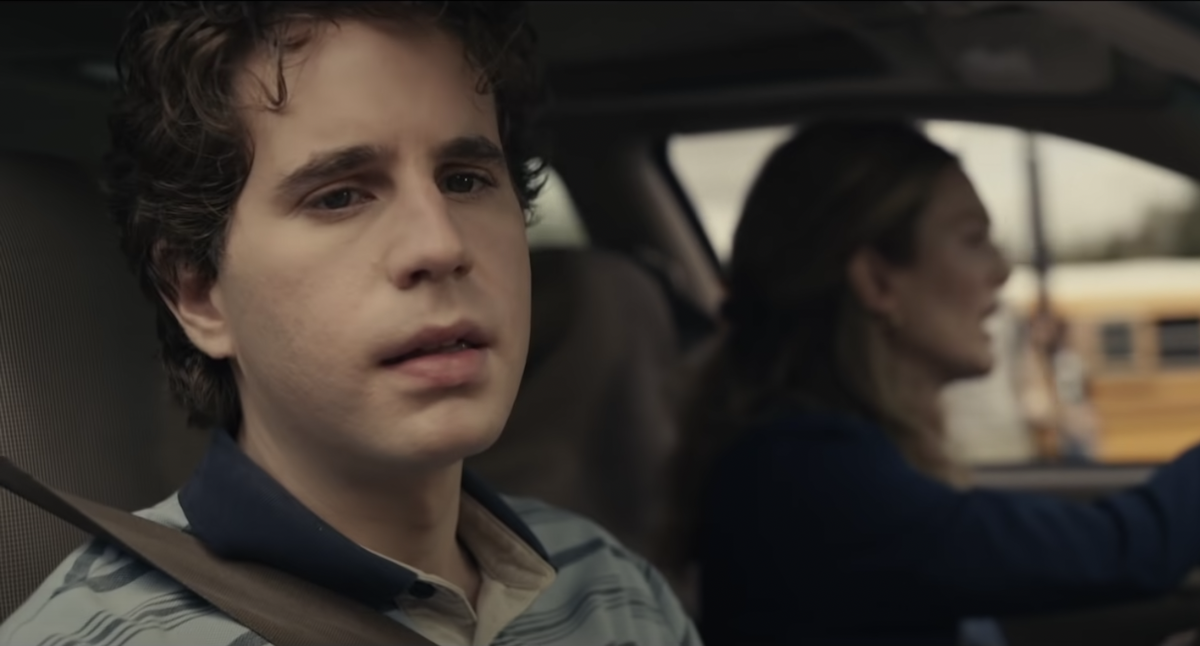Is ‘Dear Evan Hansen’ Based on a True Story?
The best musicals on Broadway are often slotted for a film adaptation or streaming performance. Much like Hamilton, Dear Evan Hansen will soon be seen on the big screens. The big question on fans’ minds is about the storyline. Is Dear Evan Hansen based on a true story, or was it adapted from a personally-experienced event? Keep reading to learn more about the Broadway musical that’s been adapted into a film.
What is ‘Dear Evan Hansen’ about?

The musical and film were both written by Steven Levenson, and they star Ben Platt, who won a Tony for his performances on stage. The movie’s large cast includes notables like Amandla Stenberg, Amy Adams, Kaitlyn Dever, and Julianne Moore, among others, according to IMDb.
The musical and film follow the same storyline with only minor differences. A teenage boy, Evan Hansen, is plagued with social anxiety that prevents him from making friends and enjoying school as most teens do. An idea from his therapist helps control his anxiety, creating an affirmation letter to himself daily. Not long into the film another boy, Connor Murphy, dies by suicide. In the boy’s pocket is one of Evan’s personal letters.
Due to his connection to Connor, Evan meets and forms a connection with Connor’s family under the premise that the two were close. The lie continues to grow and gets out of hand. Eventually, Evan goes from being the shy nobody to one of the most talked-about boys in school. The story is so easy to relate to, that many viewers might wonder if Dear Evan Hansen is based on a true story.
Is ‘Dear Evan Hansen’ based on a true story?
The social anxiety, suicide, and related connections are so believable, it’s hard to tell if the incident didn’t happen at the high school down the street. However, Dear Evan Hansen is not based on a true story; it’s loosely derived from an experience that the music and lyric writer Benj Pasek had in his teenage years.
Pasek’s experience in his high school in suburban Philadelphia involved an accidental overdose of a fellow student. “It was someone who had been sort of a loner, didn’t have a lot of friends or status at school,” Levenson, the writer for the musical, explained during a New York Comic Con panel, according to Film School Rejects. “But suddenly in the wake [of] the death, Benj watched as everyone wanted to claim that they had been friends with him and claim that they had been a part of this person’s life.”
The film adaptation hits theaters on Sept. 24
The musical and the film will have one large difference: how the teens of today rely on social media to express feelings and especially how the teens interact with each other after a tragedy. In the film, Evan gives a short speech that is recorded and posted to social media about how close he and Connor were. Due to the impact of the online accounts, the post goes viral and is used to legitimize their relationship with the parents. The film tries to display the ever-growing role social media is playing in the lives of everyone, from young children to older adults.
Dear Evan Hansen, the musical, faced immense success as it brought the issue of teenage mental health to the forefront once again. Its success is what led to the remastering of the story into the film version. In fact, the cast received such an outpouring of letters of young people wanting to tell their own trials that the team had to be advised by medical professionals on how to respond to the messages.
The openness of Dear Evan Hansen (in addition to its amazing score) is a major part of what makes the movie a success. Starting a conversation about mental health is not always easy, but after watching a production like this, the topic is easier to discuss.
You can watch the film adaptation of Dear Evan Hansen in theaters on Sept. 24. Universal Pictures productions should release the streaming version on Peacock near the beginning of the new year.
How to get help: In the U.S., call the National Suicide Prevention Lifeline at 1-800-273-8255. Or text HOME to 741-741 to speak with a trained crisis counselor at the free Crisis Text Line.


